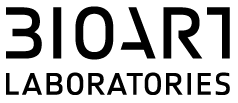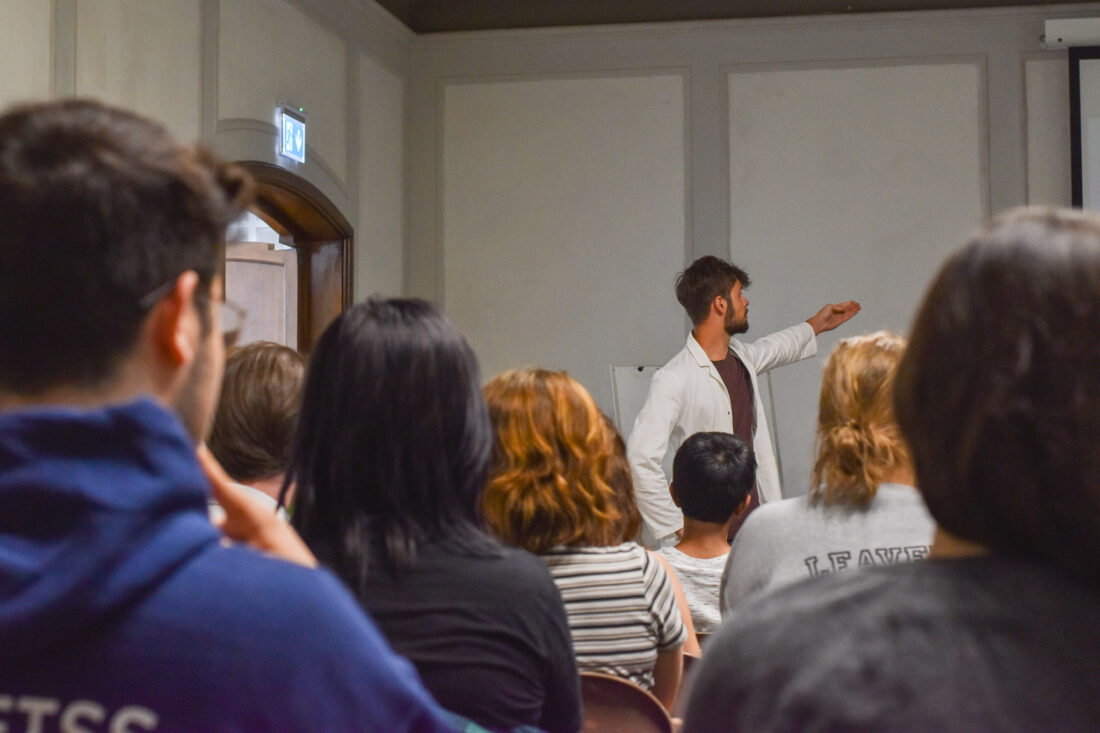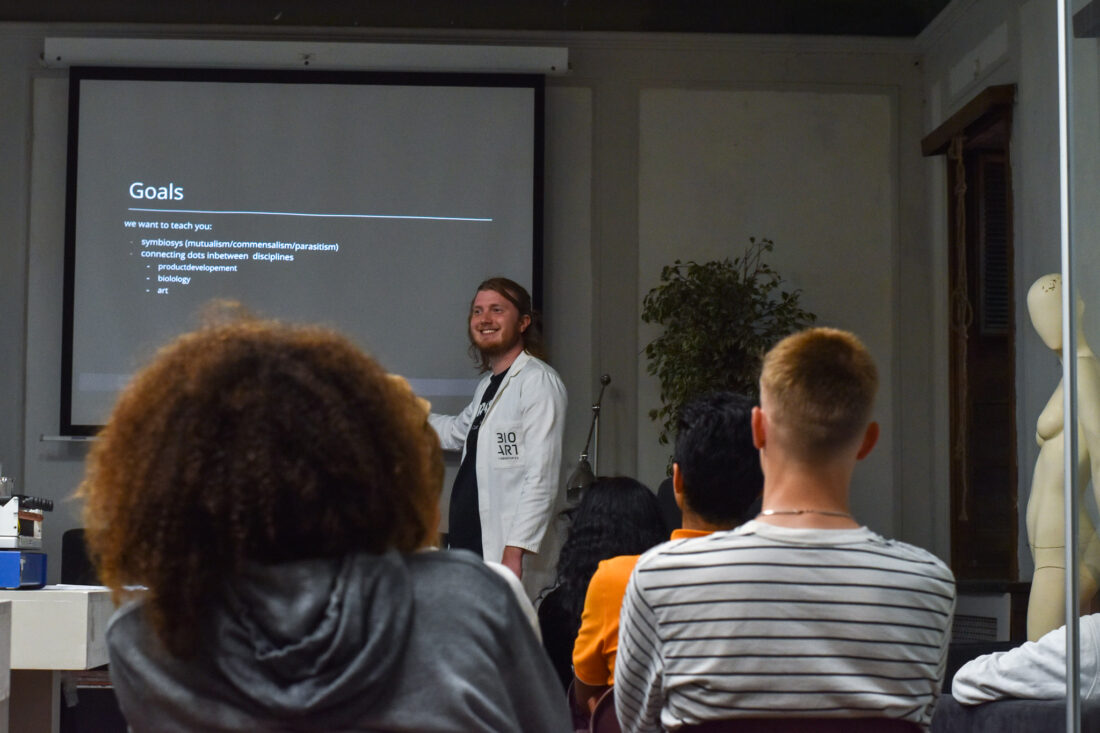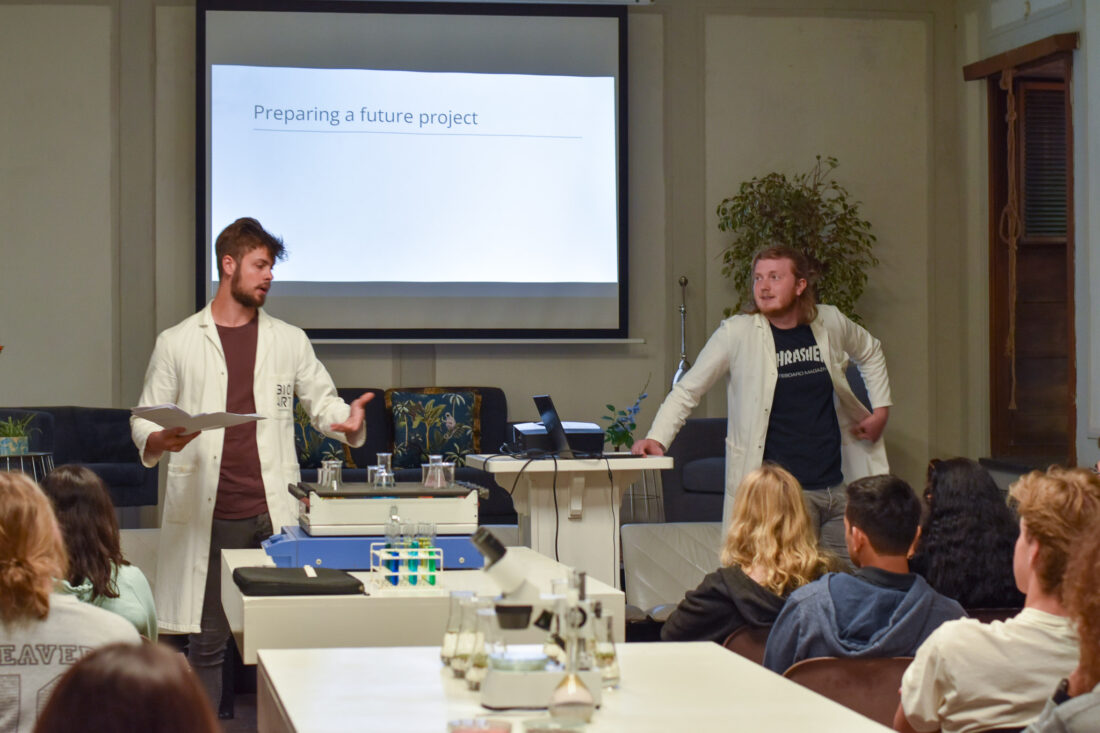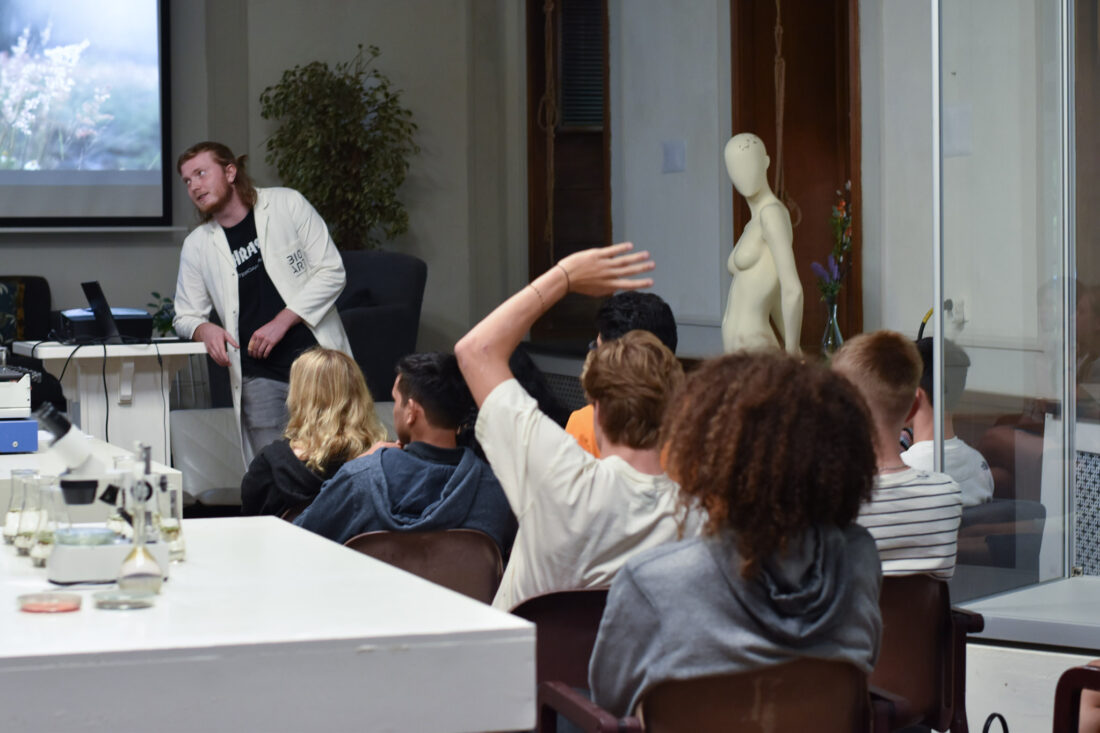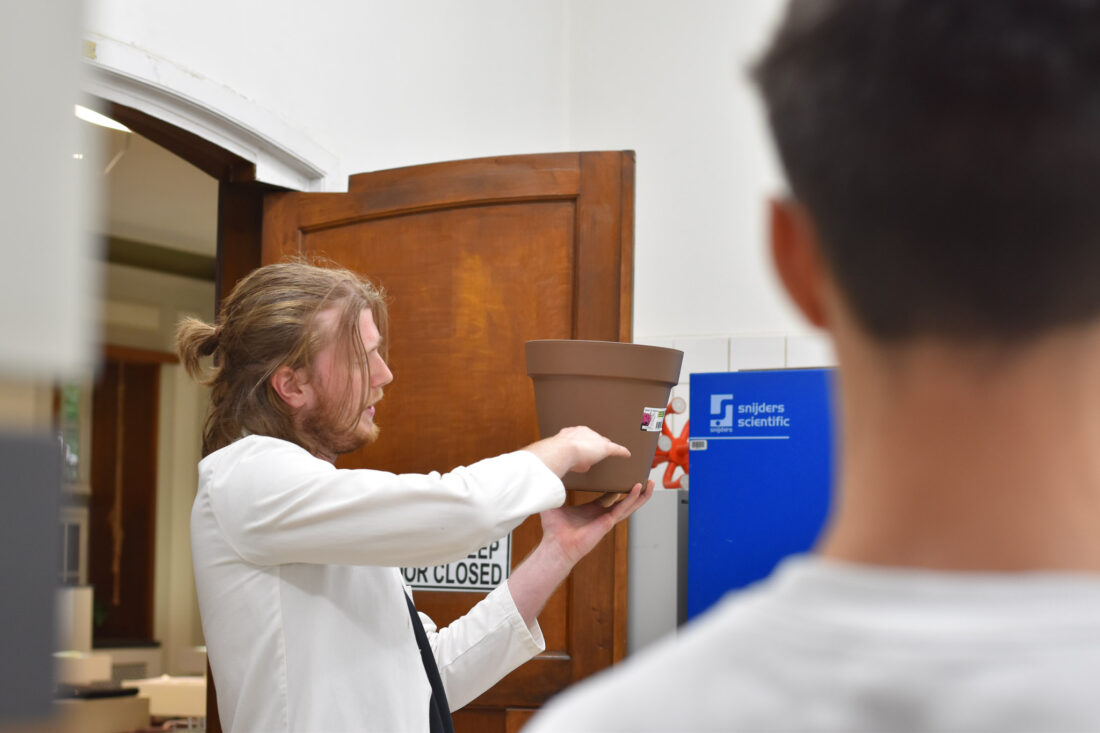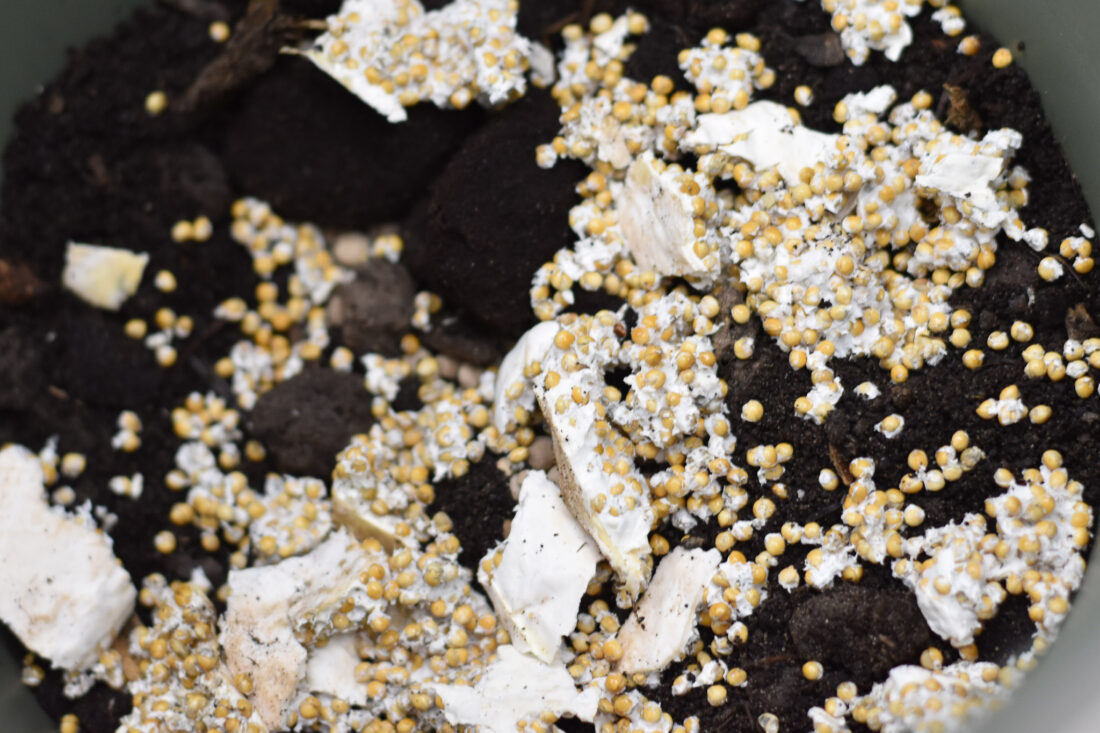Crosslab 1: Starting the Symbiocene
It’s a Monday afternoon when the old military officers’ premises fill up with the sound of chatter and laughter that young voices make. 25 students of the International School Eindhoven have come to visit BioArt Village to follow newly developed lectures and workshops about the Symbiocene. These workshops are the product of Crosslab: a collaboration between BioArt Laboratories and the Fontys biology teacher study programme. Today is the first of six courses.
As the students take their seats between the erlenmeyers filled with colored fluids in the large conference room Harm Langedijk en Boris van Alphen, two biology teachers in training, stand in front of a projector. The teachers in training are eager, although a bit nervous, to start their lecture. Fortunately, their nerves disappear as soon as they get the class to laugh at their jokes and listen to their presentation. These students seem to be the perfect audience.
First, Boris and Harm give an introduction as to what we understand to be the Symbiocene. They tell the students that this is an era in which the ecosystem relies on multiple species living in symbiosis to one another in contrast to the current era we live in, in which humans take a central position in the ecosystem.
Then, they carefully explain the 3 types of symbiosis: mutualism, commensalism and parasitism. Three examples of organisms that have symbiotic relationships are given. It is then up to the students to discuss what type of symbiosis these species have going on.
After all the theory it’s time to wrap up with something practical. In one of the later workshops, the students will make paper out of mushrooms. However, for that to happen successfully, you’ll need mushrooms. So, Harm and Boris hand out buckets with coffee grounds, a scoop, starter and nutrients. It’s time for the students to start cultivating their own mushrooms, which they will be able to use later. After this is done, the waiting begins. The waiting for the mushrooms to grow, and for the next workshop.
Date
May 19, 2022
Category
Education, Events


